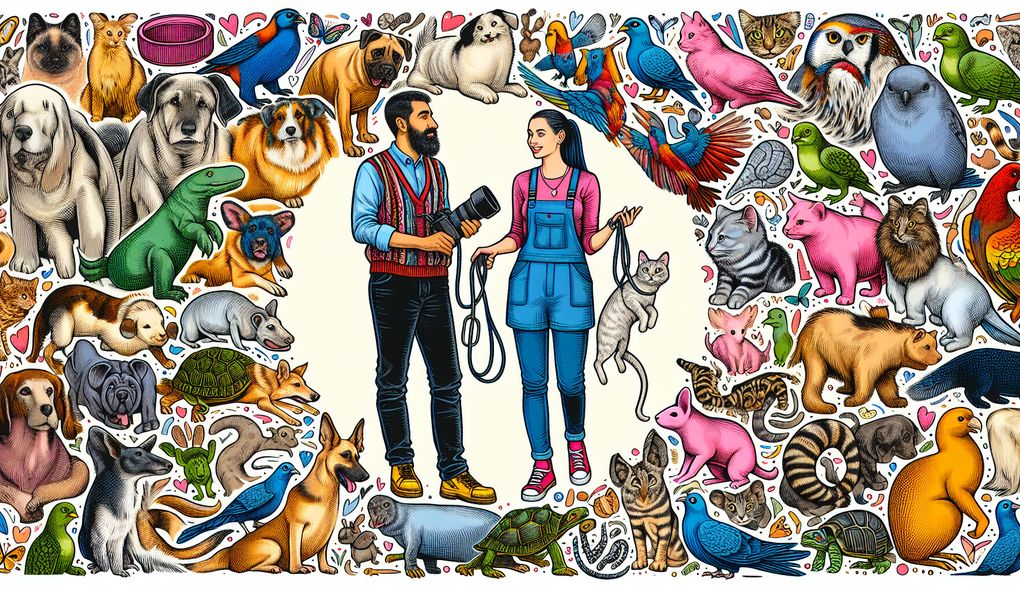How do you mentor junior behaviorists and provide guidance in best practices of animal behavior modification?
SENIOR LEVEL

Sample answer to the question:
As a senior animal behaviorist, mentoring junior behaviorists and guiding them in best practices of animal behavior modification is an important aspect of my role. I believe in taking a hands-on approach and leading by example. I start by creating a supportive and inclusive environment where junior behaviorists feel comfortable asking questions and seeking guidance. I provide regular one-on-one meetings to discuss their progress, address any challenges they may be facing, and provide constructive feedback. I also encourage them to observe and assist me during behavioral assessments and modification sessions, allowing them to learn from real-life scenarios. Additionally, I recommend and assign relevant literature and scientific articles for them to study, helping them build a strong theoretical foundation. Overall, my goal is to empower junior behaviorists to develop their skills and knowledge, while ensuring they adhere to the highest standards of best practices.
Here is a more solid answer:
As a senior animal behaviorist, mentoring junior behaviorists is a key responsibility that I take very seriously. To provide effective guidance in best practices of animal behavior modification, I often start by assessing the knowledge and skills of the junior behaviorists. Based on their strengths and areas for improvement, I tailor my mentorship approach. I believe in leading by example and setting high standards. I provide clear expectations and objectives, and I encourage junior behaviorists to observe and assist me during behavioral assessments and modification sessions. This hands-on experience allows them to learn practical techniques and strategies. I also hold regular one-on-one meetings to discuss their progress, answer any questions they may have, and provide constructive feedback to help them grow. Additionally, I recommend and assign relevant literature for them to study, which helps them deepen their understanding of animal behavior. By creating a supportive and inclusive environment, I foster a culture of continuous learning and growth. I believe that through mentorship, I can empower junior behaviorists to become skilled and knowledgeable professionals in the field of animal behavior modification.
Why is this a more solid answer?
The solid answer expands on the basic answer by providing more specific details and examples of the candidate's mentorship approach. It highlights their focus on tailoring mentorship to individual needs, providing hands-on experience, and encouraging ongoing learning. The answer demonstrates their expertise and experience in mentoring and helps to address the evaluation areas by showcasing their knowledge of animal behavior, experience in behavior modification, interpersonal skills, and leadership abilities. However, the answer could further enhance its impact by providing specific examples or anecdotes from past mentoring experiences.
An example of a exceptional answer:
As a senior animal behaviorist, mentoring junior behaviorists is a passion of mine. I believe in providing comprehensive guidance in best practices of animal behavior modification to ensure that they develop a strong foundation in the field. To achieve this, I employ a multifaceted approach. Firstly, I assess the strengths and weaknesses of each junior behaviorist through supervised observations of their work and discussions about their knowledge and skills. This allows me to tailor my mentorship to their individual needs and provide targeted support. For instance, if a behaviorist needs to improve their observational skills, I might recommend specific exercises and provide resources to enhance their abilities. Additionally, I organize regular group meetings where junior behaviorists can share their experiences, exchange ideas, and learn from one another's challenges and successes. I also encourage them to attend conferences and workshops to expand their knowledge and network with other professionals in the field. Moreover, I aim to inspire and empower junior behaviorists by involving them in research projects, allowing them to contribute to the academic and professional community. By immersing them in practical experiences, teaching them the latest behavior modification techniques, and setting high standards, I ensure that they grow into confident and competent professionals who can make a positive impact on animal welfare.
Why is this an exceptional answer?
The exceptional answer goes above and beyond by providing detailed and specific examples of the candidate's mentorship approach. It showcases their ability to assess the needs of junior behaviorists, develop personalized plans for their improvement, and create opportunities for them to learn from each other and contribute to the field. The answer demonstrates their deep understanding of best practices in animal behavior modification and their commitment to inspiring and empowering junior behaviorists. It effectively addresses the evaluation areas, including knowledge of animal behavior, experience in behavior modification, interpersonal skills, and leadership abilities. However, the answer could further enhance its impact by incorporating real-life examples or anecdotes from the candidate's past mentoring experiences.
How to prepare for this question:
- Familiarize yourself with the best practices in animal behavior modification and stay updated with the latest research and advancements in the field.
- Reflect on your past experiences of mentoring and identify specific examples that highlight your approach, strategies, and the positive outcomes achieved.
- Think about how you can assess the strengths and weaknesses of junior behaviorists and develop tailored mentorship plans based on their individual needs.
- Consider how you can create a supportive and inclusive environment where junior behaviorists feel comfortable seeking guidance and asking questions.
- Prepare to provide examples of how you have led by example and set high standards in your mentorship role.
- Reflect on how you have encouraged ongoing learning among junior behaviorists, both through hands-on experiences and through recommending relevant literature and resources.
- Consider how you have fostered collaboration and knowledge-sharing among junior behaviorists through group meetings or other platforms.
- Think about how you have inspired junior behaviorists to contribute to the academic and professional community through research projects or participation in conferences.
What are interviewers evaluating with this question?
- Knowledge of animal behavior
- Experience in behavior modification
- Interpersonal skills
- Leadership and mentoring skills

